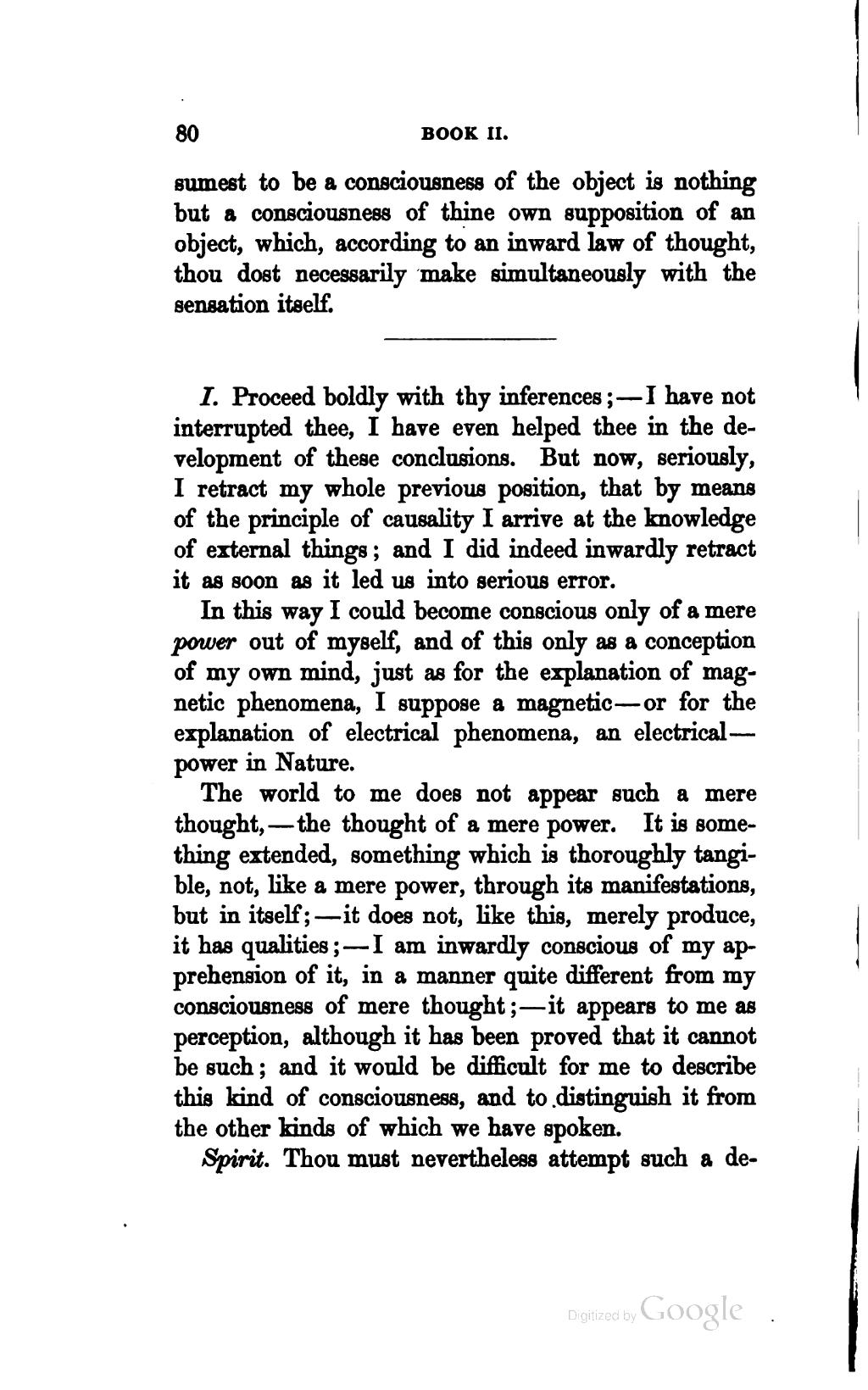sumest to be a consciousness of the object is nothing but a consciousness of thine own supposition of an object, which, according to an inward law of thought, thou dost necessarily make simultaneously with the sensation itself.
I. Proceed boldly with thy inferences;—I have not interrupted thee, I have even helped thee in the development of these conclusions. But now, seriously, I retract my whole previous position, that by means of the principle of causality I arrive at the knowledge of external things; and I did indeed inwardly retract it as soon as it led us into serious error.
In this way I could become conscious only of a mere power out of myself, and of this only as a conception of my own mind, just as for the explanation of magnetic phenomena, I suppose a magnetic—or for the explanation of electrical phenomena, an electrical—power in Nature.
The world to me does not appear such a mere thought,—the thought of a mere power. It is something extended, something which is thoroughly tangible, not, like a mere power, through its manifestations, but in itself;—it does not, like this, merely produce, it has qualities;—I am inwardly conscious of my apprehension of it, in a manner quite different from my consciousness of mere thought;—it appears to me as perception, although it has been proved that it cannot be such; and it would be difficult for me to describe this kind of consciousness, and to distinguish it from the other kinds of which we have spoken.
Spirit. Thou must nevertheless attempt such a de-
